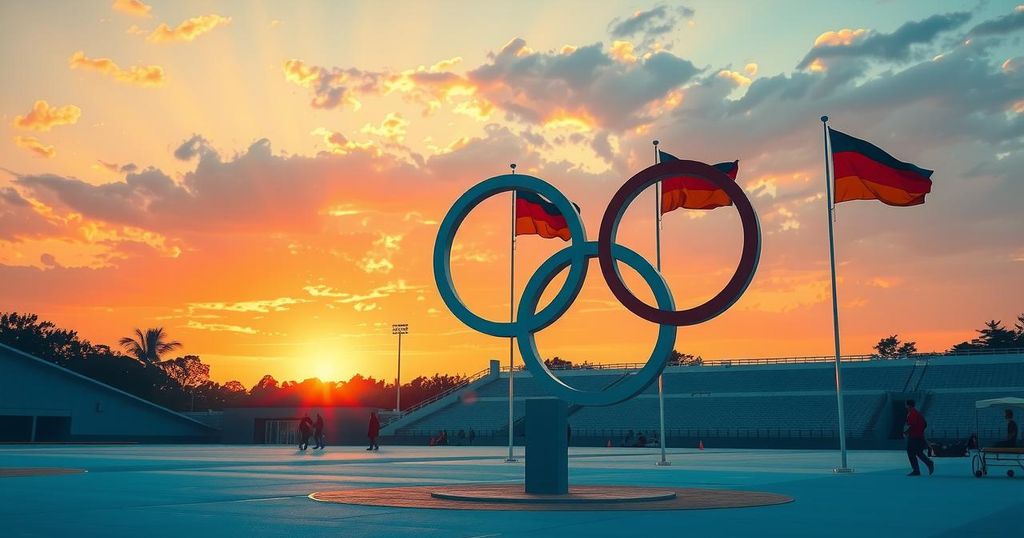Juan Antonio Samaranch downplays his status as a favorite in the IOC presidential election, which features candidates including Sebastian Coe and Kirsty Coventry. The election, viewed as highly competitive, will result in a new president, marking potential changes in leadership. Samaranch emphasizes the importance of successful Olympic Games amidst a tightly controlled voting process.
On the eve of the IOC presidential election, candidate Juan Antonio Samaranch downplayed his status as a favorite. While speculation surrounds his chances to succeed Thomas Bach, Samaranch expressed uncertainty, stating, “I really don’t know.” The election is viewed as highly competitive, focusing on three front-runners: Samaranch, Sebastian Coe, and Kirsty Coventry.
Coventry, the 41-year-old Zimbabwean sports minister, seeks to be the first female and African IOC president. Speaking about the need for change, she said, “Let’s create some change, let’s make sure that happens.” In contrast, veteran ally theories suggest that while Coventry may secure a substantial first-round vote, she may not achieve a majority, positioning Samaranch to gain votes in subsequent rounds.
The election includes additional candidates: Prince Feisal al Hussein of Jordan, Johan Eliasch, David Lappartient, and Morinari Watanabe. The newly elected president will assume office on June 23, coinciding with Olympic Day, as Bach concludes his 12-year term.
The voting dynamics within the IOC, comprising 109 members, are highly uncertain, as highlighted by Prince Feisal who commented, “There is a lot of guesswork what is going on.” He claimed he has a strong chance, while Coventry emphasized the significance of matching voting intentions with the desired Olympic movement representation.
Samaranch underscored the confidentiality of votes, urging members to resist external pressures. He remarked that each voter should exercise their right based on personal conviction. Coe, with extensive experience in athletics and event organization, made light comments during media ebbs but did not elaborate on his strategy.
The election process is tightly controlled, with candidates not allowed formal presentations prior to voting, save for one brief event in January. Lappartient noted the missed opportunity for a deeper connection with voters. The latest election will mark the 10th in IOC history, with Samaranch mentioning his familial legacy is irrelevant to his campaign, stating, “Not in this moment, I think I really have to concentrate on the future.”
Samaranch also articulated the key challenges ahead for the winner, particularly emphasizing the need for successful Olympic Games in 2026 and 2028, saying, “We must concentrate (on) successful and relevant Olympic Games. The rest comes with success in the games.”
The IOC presidential election is marked by notable candidates, with Samaranch, Coe, and Coventry emerging as key figures. Samaranch has voiced uncertainty about his favorite status, while Coventry advocates for change in leadership. The election process is tightly regulated, denying candidates formal campaign opportunities until voting. The new president will face critical challenges in ensuring the success of upcoming Olympic Games as Bach concludes his term.
Original Source: abcnews.go.com






